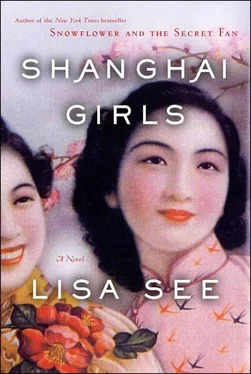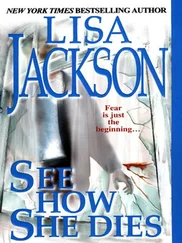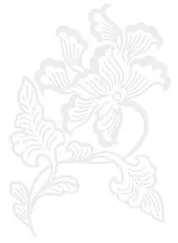Regrets scorch my skin and burrow into my heart. I didn’t do enough of the husband-wife thing with Sam. I looked at him too often as a mere rickshaw puller. I let my longing for the past make him feel that he was never enough, that our life together was never enough, that Los Angeles was never enough. Worst, I didn’t help him enough in his final days. I should have fought harder against the FBI, the INS, and this whole immigration mess. Why didn’t I see that he could no longer carry the weight of our burdens across his iron fan?
In the early morning, avoiding the screened porch, I go out the front door and around to the back of the house. I know that too many suicides haunt our community, but it feels like Sam’s death has added a new grain of salt to the boundless human ocean of misery and sorrow. Beyond my rose-covered chain-link fence, I imagine my neighbors languishing and expressing the sorrows of the ages. In that moment of quiet and grief I know what I have to do.
I go back to my room, find a photograph of Sam, and take it to the family altar that he cared for in the living room. I place his picture next to those of Yen-yen and Father. I look at the other things Sam placed on the altar to represent the others we’ve lost: my parents, his parents, brothers and sisters, and our son. I hope for Sam that his version of the afterworld exists and that he’s with all of them now, looking down from the Viewing Terrace, watching me, Joy, May, and Vern. I light incense and bow three times. No matter what I feel about my one God, I promise that I’ll do this every day until I die and I meet Sam either in his Heaven or in mine.
I’m a one-Goder, but I’m Chinese too, so I follow both traditions for Sam’s funeral. A Chinese funeral-that most significant of rites-is the last time we show respect to the person who’s left us, give him the honor to save face, and tell the young about the accomplishments and deeds of their newest ancestor. I want all that for Sam. I choose the suit he’ll wear to rest in his coffin. I place photographs of Joy and me in his pockets, so he’ll have us with him when he goes to Chinese Heaven. I make sure that Joy, May, Vern, and I all wear black-not Chinese white. We say prayers of thanks for the gift of Sam, blessings and forgiveness for the living, and mercy for all. There’s no brass band, just Bertha Hom at the organ, playing “Amazing Grace,” “Nearer, My God, to Thee,” and “ America the Beautiful.” Then we have a simple, modest, mournful banquet at Soochow of five tables-just fifty people, minuscule compared with Father Louie’s funeral, even smaller than Yen-yen’s memorial, all a result of the fear our neighbors, friends, and customers feel. You can always count on people to crowd your party when you are in glory, but you should never dream of people sending you charcoal in the snow . I sit at the main table between my sister and my daughter. They do and say all the right things, but both of them ooze guilt: May for not being there when it happened, Joy for believing that she caused her father’s suicide. I know I should tell them not to feel these things. No one, no one , could have predicted Sam would do this crazy thing. But in doing it, he released Joy, the uncles, and me from further investigation. As Agent Billings told me when he came by the house after Sam died, “With your husband and father-in-law gone, we can’t prove anything one way or the other. And it turns out we may have been wrong about that group your daughter joined. This has to be good news for you, but a little advice: when your daughter goes back to school in September, tell her to stay away from all Chinese organizations, just to be on the safe side.” I looked at him and said, “My father-in-law was born in San Francisco. My husband was always a citizen.”
How could I be so clear with the INS man but not know how to talk to my sister or console my daughter? I know they’re both in pain, but I can’t help them. I need them to help me . But even when they try-by bringing me cups of tea, by showing me their red and puffy eyes, by sitting on my bed as I weep-I find myself filled with immense sadness and… rage. Why did my daughter have to join that group? Why didn’t she show her father proper respect in his last few weeks? Why did my sister always encourage Joy’s American side about clothes and haircuts and attitudes? Why didn’t my sister help Sam and me more during these difficulties? Why didn’t she take care of her husband-for all these years but especially on the day of Sam’s death? If she’d been taking care of him, as a proper wife should, then I would have been able to stop Sam. I know this is just my grief speaking. It’s easier to feel anger at them than agony at Sam’s death.
Violet and her husband, also at our table, pack up the leftover food for me to take home. Uncle Wilburt says good-bye. Uncle Fred, Mariko, and the girls go home. Uncle Charley lingers for a long time, but what can he say? What can any of them say? I nod, shake their hands in the American way, and thank them for coming, doing my best to be a proper widow. A widow…
DURING THE MOURNING period, people are supposed to visit, bring food, and play dominoes, but just as with the funeral, most of our friends and neighbors stay away. The gossips smack their lips, but they don’t understand that my troubles could become their troubles at any time. Only Violet dares to visit. For the first time in my life I’m grateful that there’s someone besides May to comfort me.
In so many ways Violet-with her job and her house in Silver Lake-is more assimilated than we are, but she’s taking a risk coming here, since she and Rowland have more to be afraid of than Sam and I ever did. After all, Violet and her family were trapped here when China closed. Violet’s and Rowland’s jobs-which once seemed so impressive-now make them targets. Perhaps they’re spies left here to collect the United States ’ technology and knowledge. And yet she overcomes her fear to see me.
“Sam was a good Ox,” Violet says. “He had integrity and bore the burdens of righteousness. He followed the rules of nature, patiently pushing the wheel of fate. He was not afraid of his destiny. He knew what he had to do to save you and Joy. An Ox will always do whatever is needed to protect his family’s welfare-”
“My sister doesn’t believe in the Chinese zodiac,” May cuts in.
I don’t know why she says this. Sure, there was a time when I didn’t believe in these things, but that was a long time ago. I know in my heart that my sister is forever a Sheep, that I’m forever a Dragon, that Joy is forever a Tiger, and that my husband was an Ox-dependable, methodical, calm, and, as Violet said, the bearer of so many burdens. This comment, like so much of what comes out of May’s mouth anymore, shows how little she knows about me. Why haven’t I seen it before?
Violet doesn’t react to May. Instead, she pats my knee and recites an old saying. “All things light and pure float upward to become Heaven.”
In my life, no three miles have been flat and no three days have had sun. I’ve been brave in the past, but now I’m beyond devastated. My grief is like dense clouds that cannot be dispersed. I can’t think beyond the blackness of my clothes and heart.
Later that evening-after Vern has been fed and his lights turned out and Joy has gone out with a couple of the Yee girls to talk and drink tea-May knocks on the door to my room. I get up and answer it. I’m wearing a nightgown, my hair is a mess, and my face is splotched from mourning. My sister wears a slim sheath of emerald green satin, her hair is teased into an improbably high bouffant, and diamond and jade earrings dangle from her ears. She’s going somewhere. I don’t bother to ask where.
Читать дальше












